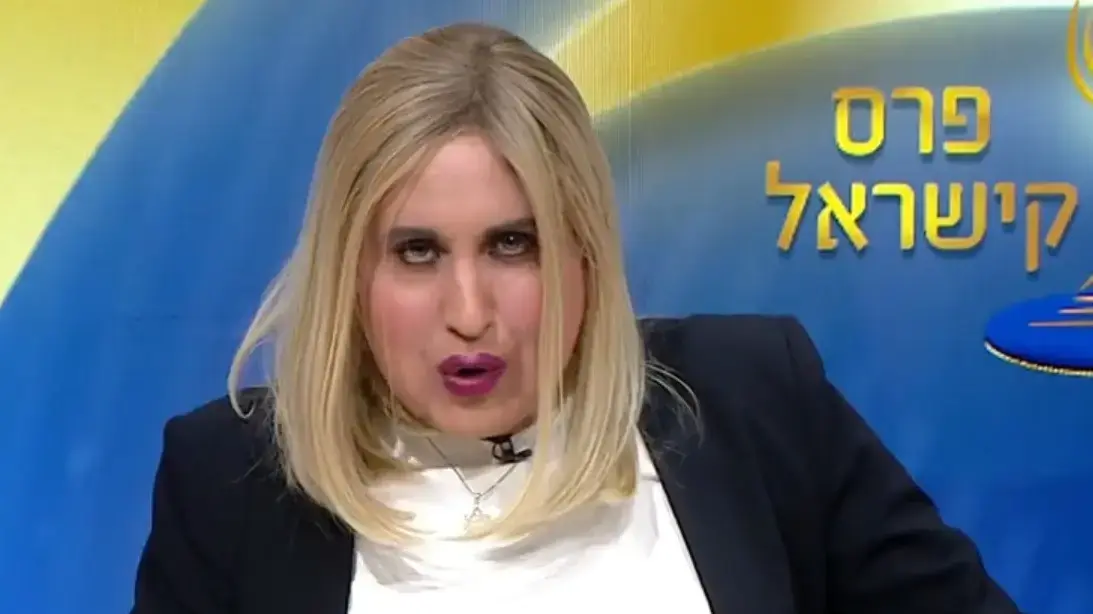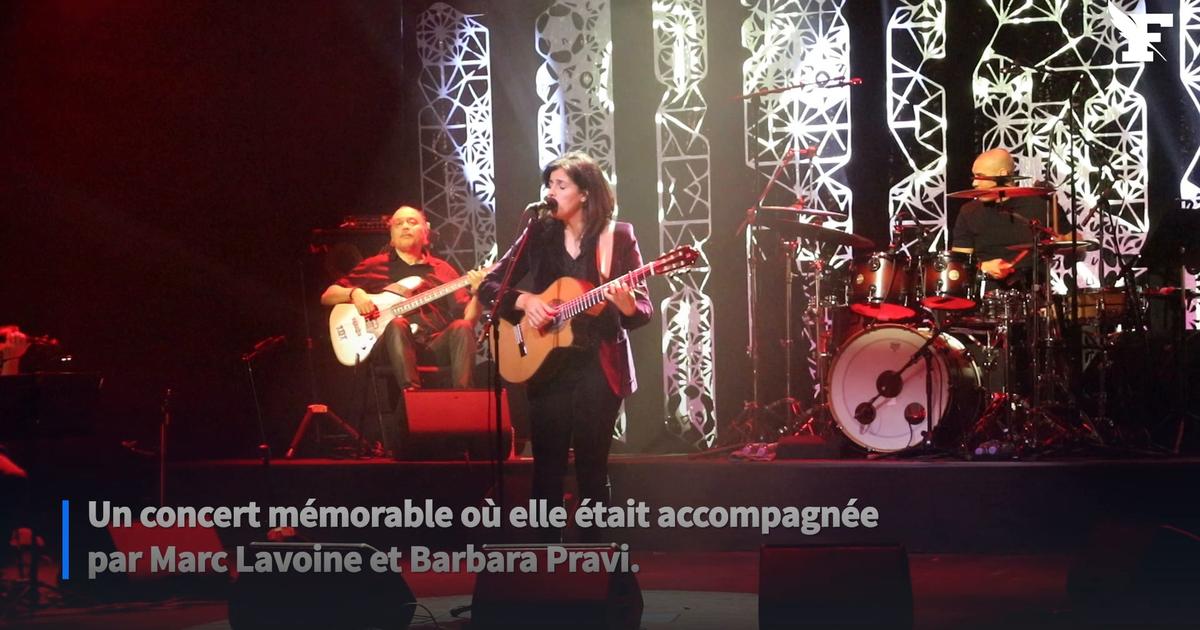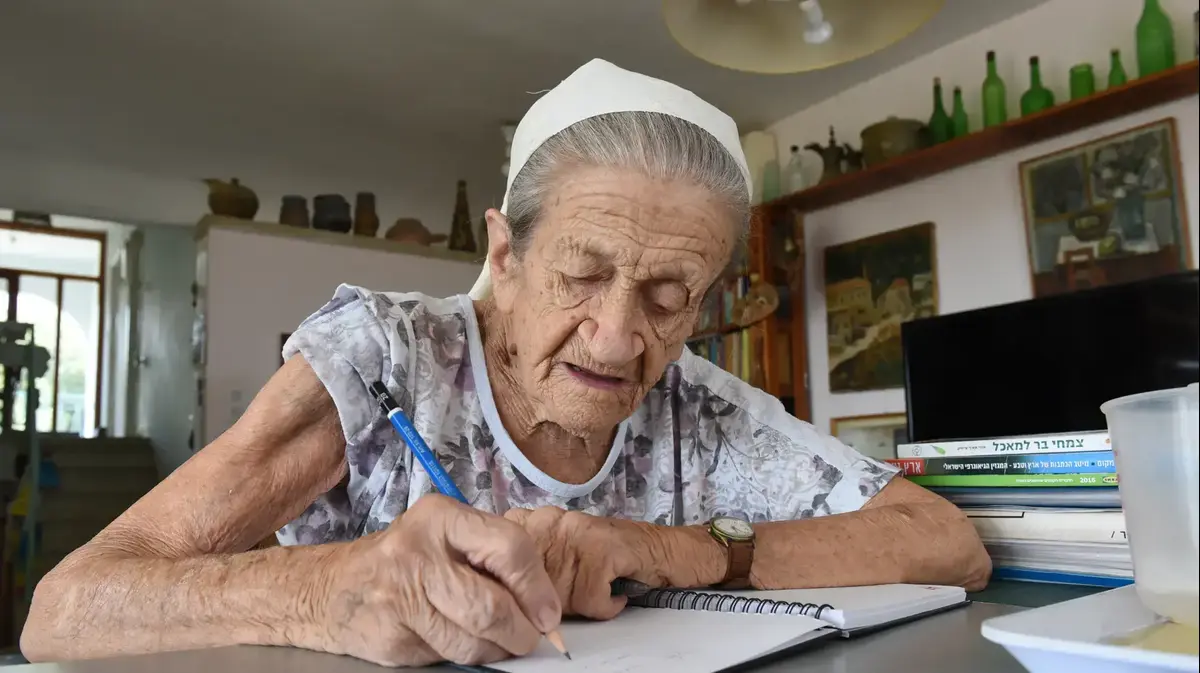From "Queen of the Bath" (Photo: Reddy Rubinstein)
Hanoch Levin's "Queen of the Bath" — that "two-part satirical revue about the Sabbath of brothers in the shadow of cannons" as its full title — is more than a collection of sketches. He is a symbol. An extreme point of Israeli theater and Israeli culture as a whole, perhaps the cruelest and most merciless mirror that the Israeli story can receive.
We've never looked worse than we do in "Bath Queen": hollow, jealous, delighted, perfumed by our image and self-centered, utterly indifferent to the suffering of the other at best and happy at worst, swept up in pathos towards another cycle of war, violence and death in the name of some invented principle. It's a text that ridicules our most painful and sensitive points – ones that hurt especially in 2023 – with the addition of hypnotic songs, biblical allusions, and, of course: Keke and Pee, so we don't forget how filthy everything is even in our hands.
In his many plays, Levine was able to describe with wonderful poetics the tragedy of human existence. But "Bath Queen" is exactly on the other side of the scale of his work: blunt, devoid of any subtlety or subtext, that punches viewers over and over again.
When it premiered in 1970 at the Cameri Theater, viewers threw back: the storm caused by the show in Israel, drunk with its victory in the Six-Day War, was so great that it was taken off the stage in a short time. But as sometimes happens in such cases, the years – as well as the widespread recognition of Levin as one of Israel's leading playwrights, and the fact that the problems that corrupted our lives here have not really been solved – have only turned "Queen of the Bath" into mythology and a formative text. Horrifyingly, significant portions of the show and its protagonists remain frighteningly relevant. After all, a generation is coming and a generation is coming, and the "people of all right", the protagonists of a central song of "Bath Queen", who are so pleased with themselves and convinced that they are right, with a finger in the ass and a throat song, stand forever.
From "Queen of the Bath" (Photo: Reddy Rubinstein)
And because 2023 is one of the most disturbed years in our history, it is not better suited to host a new version of the show, which takes to the stage of the Arab-Hebrew Theater in Jaffa directed by Rabia Khoury and starring four Arab actors: Mona Hua ("Manaik"), Rami Saliba, Watan Abdelghani and Bassam Biromi (more on that later).
The small stage, topped with baths and toilets as a backdrop, befits the opposition class – and in some way, even though the language has changed immeasurably, the fast pace of the skits seems to be adapted to a generation living in minute-and-a-half videos on TikTok.
Even today, the bath has a lot to clean – especially towards the satiated and self-centered Israeli bourgeoisie, including the one on the "enlightened" side. With conscious eyes, "Harpsichord" accurately diagnoses the lack of solidarity and equality, which is only realized during a confrontation and even that ostensibly. Hulda and Boaz, the privileged and ridiculous heroes of "The Courtship" are a caricature of Tel Aviv in love with itself, to the point of their uncontrollable desire to kiss their to the sounds of the "Blue Danube". The proud mothers that Loki and Petzelochs brag about their children's great achievements – that all they do is eat and sleep. And okay people - sure they're okay - well, as I said, they still are. Even a "cabinet meeting," in which Hua skips between imitating the always-righteous Golda Meir and imitating Netanyahu, illustrates how little has changed in Israel's perception of itself.
More in Walla!
Pitro is celebrating a round birthday and you enjoy a once-in-60-year sale
In association with Pitro
From "Queen of the Bath" (Photo: Reddy Rubinstein)
But the most important element in the 2023 version of "Bath Queen" is the Palestinian identity of the production. Ostensibly, the identity of the actors has no meaning - the role on stage is what counts. But this is not so: this identity is present on stage, and not only because of one accent or another, but mainly because of the repeated preoccupation of the "Queen of the Bath" with the Zionist narrative, its messianic-religious aspects ("The Kingdom is Solomon," "The Ten Commandments") and the dismissive, racist and violent attitude toward Arabs.
Therefore, the whole point of view changes when Levin's internal Jewish parody, however harsh, becomes an indictment from the side that is not heard in the conversation. And its clauses are many: the shy cannon that does not like to put a shell on all of you, fires precisely at Israel's indifference to harming uninvolved civilians; "It Was at the Age of Three" that follows, centered on children standing under shelling, reminds us that both in Gaza and in Sderot girls want to live; This includes, of course, the "interview" in which a journalist asks random people what they think about "our relations with the Arabs" and discovers that they have nothing to say.
First and foremost, it concerns two particularly difficult sketches: "Smetuka," a meeting between "progressive" Jews who employ an Arab worker who is "just like us," and their friends who, out of morality, barely stop themselves from beating him because of an attempted attack that occurred the day before; And "Shabbat Candles" (a monologue from "The Patriot," a later satire by Levine that was incorporated into the current production), in which a fantasy about sex and violence, and at the end of which real abuse of an Arab, receives a Yiddishkeit envelope. These are blatant skits about Jewish supremacy, presenting the most terrible possibility of a meeting between the two peoples. It's not particularly funny: the sight is so ugly and terrifying that it's hard to digest it at all.
From "Queen of the Bath" (Photo: Reddy Rubinstein)
And when Arab actors perform them on stage, the irony disappears. In Levin's text, the Arab characters hardly speak. The Jaffa Theater's version brings their voice into the situation. And in that voice, it's not a parody at all and the irony is dead – it's a horror movie, an illustration of the deep fears of a minority who are treated as enemies. This changes the whole picture: Anyone who expects a reenactment of an ancient satire about generations that are no longer relevant – and therefore supposedly no one to be hurt by it anymore – will find that the renewed punch hurts much more in the stomach.
And the truth is that this fist is also directed inward, and at its peak - satire is universal. After all, even in the grotesque description of the binding of Isaac, when Abraham is on the toilet and his pants are rolled up and Isaac waits to be eaten in the bath, or "My dear father, when you stand on my grave" accompanied by the playing of oud, the story is shared by all nations who lose their children on the altar of holy wars.
There are some changes to the current version of "Bath Queen", some skits that have been dropped and some that have been cut, including the theme sketch. Not everything is brilliant: some have aged completely ("fly"), some in an outdated language, some could be refined and perfected, and some, what to do, tragedy overcame comedy.
From "Queen of the Bath" (Photo: Reddy Rubinstein)
Still, the production includes some spectacular moments, and relies on a dream cast: with Hua's charisma you can light up entire halls, Saliba is hilarious, Biromi celebrates on stage, and Abdelghani will be heard a lot more in the future. The meager bathroom setting gives each and every skit a nonsensical, lighthearted and silly space, and the ultimate break comes in the musical speakers, which out of loyalty to the original music written by Zohar Levy sound some perfect parody of the sound of the seventies in Israel, rhythm bands and the military bands (musical arrangement and direction: Elias Garzuzi).
It's doubtful that the 2023 version of "Bath Queen" will make the same noise as the original. The stage is less central, the theater is less important, and even though populists still fight against every trace of critical culture, Israeli society today is indifferent to this kind of art, especially at a time when the entire Israeli discourse is built on echo chambers into which nothing penetrates. Who wants to look in the mirror anyway? After all, the kingdom of the bath is in our hands, and that's what matters.
- culture
- stage
- Theatre
Tags
- Jaffa Theater
- Hanoch Levin









